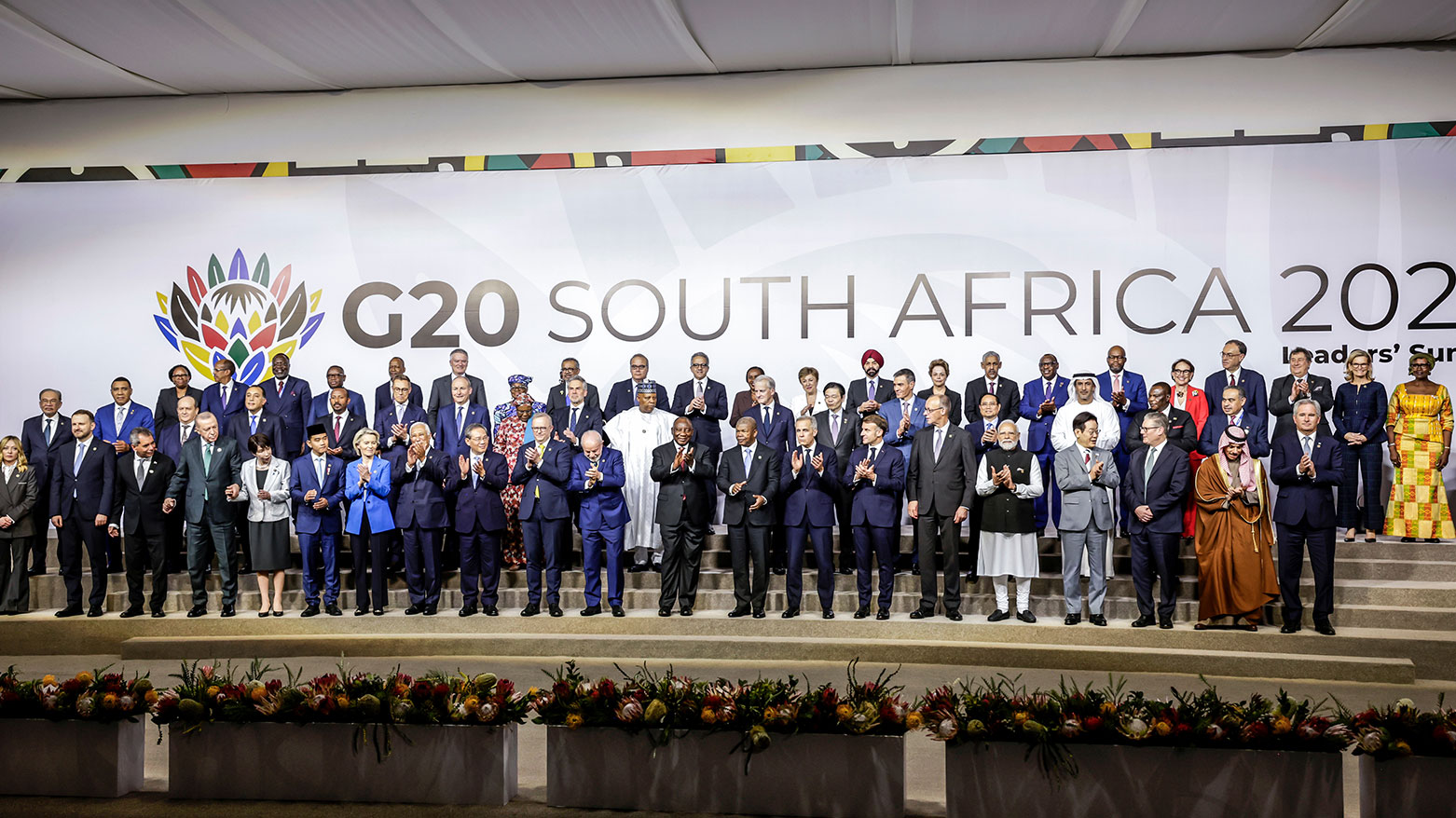Developing Nations Press for Climate Action, Fair Financing at South Africa G20 Summit
The gathering — the first G20 summit ever hosted on African soil — brought together G20 members, the African Union, the European Union, and invited states including Zimbabwe, Namibia, Jamaica, and Malaysia.

ERBIL (Kurdistan24) — Developing nations used this year’s Group of 20 summit in South Africa to amplify urgent calls for stronger climate action, fairer financing, and debt relief, arguing that these issues are critical to the future stability of the global south.
The gathering — the first G20 summit ever hosted on African soil — brought together G20 members, the African Union, the European Union, and invited states including Zimbabwe, Namibia, Jamaica, and Malaysia. Many praised South Africa for steering an inclusive agenda that placed inequality and the needs of poorer countries at the forefront. Pretoria hands over the G20 presidency to the United States next, though Washington boycotted the Johannesburg meeting following President Donald Trump’s unsubstantiated claims that South Africa persecutes its white Afrikaner minority.
Throughout the summit, leaders from developing nations urged their wealthier counterparts to reshape global systems to better reflect the needs of vulnerable economies. Ethiopian Prime Minister Abiy Ahmed emphasized that debt relief must be tied to meaningful investment in people, noting that “inclusivity is not charity, it is efficiency.”
Namibian President Netumbo Nandi-Ndaitwah called for more equitable financial structures, highlighting that despite repaying a $750 million bond on schedule, her country is still deemed “risky” by global lenders. “We need fair international financial institutions,” she insisted.
Climate vulnerability also featured prominently. Jamaica’s Prime Minister Andrew Michael Holness pointed to the destructive impact of Hurricane Melissa, warning that “one external shock can undo years of progress” for countries on the climate front lines.
Addressing trade dynamics, World Trade Organization Director General Ngozi Okonjo-Iweala urged African leaders to rethink export patterns dominated by raw materials. She encouraged the creation of regional value chains to lift the continent into higher-value production.
Civil society voices echoed the summit's themes. Nabil Ahmed of Oxfam noted that, for the first time, the G20 placed inequality at the center of its agenda. “The world recognizes that we have a climate emergency. It’s now time that we recognize that we have an inequality emergency as well,” he said, praising South Africa for prioritizing the interests of African and global south nations.
As the summit concluded, developing countries signalled that their push for fairer systems — on climate, trade, and finance — will continue as global challenges grow more complex and interconnected.